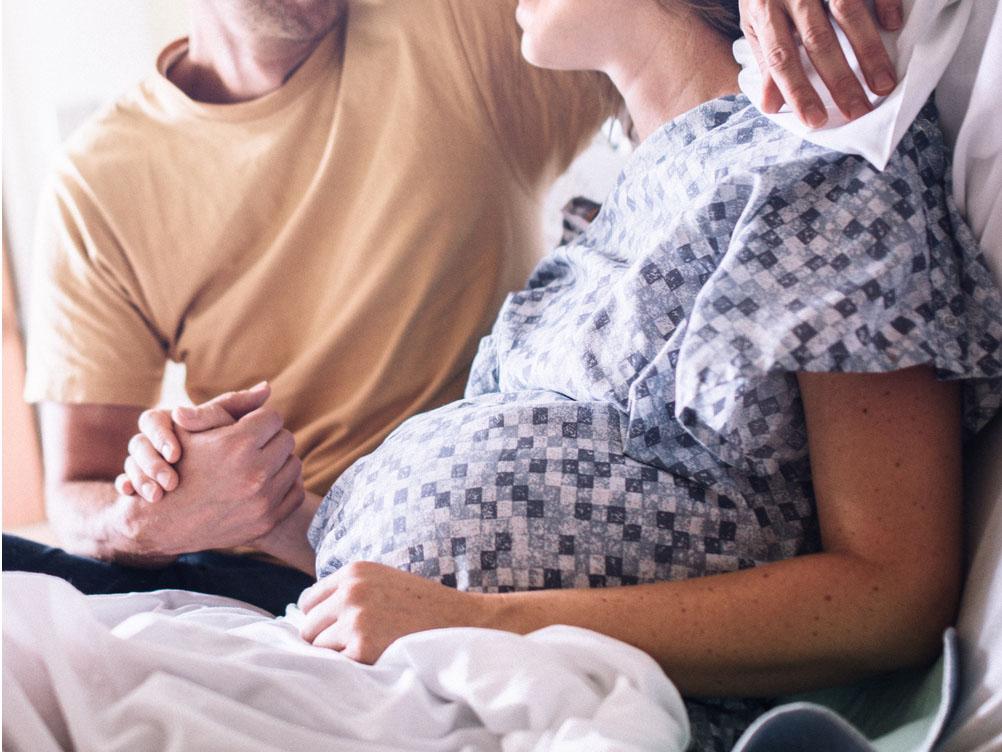Pre-eclampsia: NHS to roll out breakthrough test which speeds up diagnosis and can save lives
Seizures, stroke and maternal deaths fell 20 per cent where clinicians had access to placental growth factor test

The NHS is set to roll out a revolutionary blood test for pre-eclampsia, after a trial showed it can diagnose the condition earlier in pregnancy and significantly reduce life-threatening complications.
Complications like stroke, seizures and maternal death fell by 20 per cent when doctors had access to placental growth factor (PlGF) testing, research led by King’s College London found.
Pre-eclampsia affects one in 10 pregnancies in the UK (80,000 women a year) and in serious cases causes extremely high blood pressure which can damage the brain and other organs, leading to coma and death.
Diagnosis has historically been done through blood pressure tests and looking for raised protein levels in the urine, but experts say these measures are too subjective.
The latest findings show PlGF provides more consistent results as well as giving critical extra time for maternity staff to act.
"This innovative blood test, as set out in this new study, helps determine the risks of pre-eclampsia in pregnancy, enabling women to be directed to appropriate care or reduce unnecessary worry more quickly,” said Professor Tony Young, national clinical lead for innovation at NHS England.
As a result of the findings, published in the Lancet medical journal, Prof Young said the NHS England and the government “will be making this test more widely available across the NHS".
Pre-eclampsia affects around one in ten UK pregnancies, approximately 80,000 women a year. It is a leading cause of death in pregnancy, and globally 100 women a day die from complications.
It is thought to be caused by a problem with the placenta, the organ which supplies oxygen and nutrients to the foetus. While it can be managed with blood pressure drugs the only "treatment" for severe pre-eclampsia is the delivery of the baby and placenta, even if it means a very premature birth.
To test the effect of PlGF testing the King’s team recruited more than 1,000 women with suspected pre-eclampsia from 11 maternity units across the UK.
Each woman was randomly assigned to either have their PlGF test results made available to their maternity team, or to rely on conventional blood pressure measurements, to see if the information led to better outcomes for women and their children.
“Now we know that it does,” said Professor Lucy Chappell, an obstetrics expert at King's who led the study.
On average pre-eclampsia was diagnosed after 1.9 days in the PlGF testing group, compared to 4.1 days without and only 4 per cent had serious complications – compared to 5 per cent without the test.

While there wasn’t a decrease in complications for the baby, there also wasn’t an increase in admissions to neonatal units or preterm births.
“The evidence shows that widespread PlGF testing could saves lives and it is fantastic news that NHS England agree,” Prof Chappell added. “Many tests have come into practice without robust assessment. This time, we have evaluated this new test and shown that it improves care and outcomes for pregnant women and their babies."
Join our commenting forum
Join thought-provoking conversations, follow other Independent readers and see their replies
Comments
Bookmark popover
Removed from bookmarks